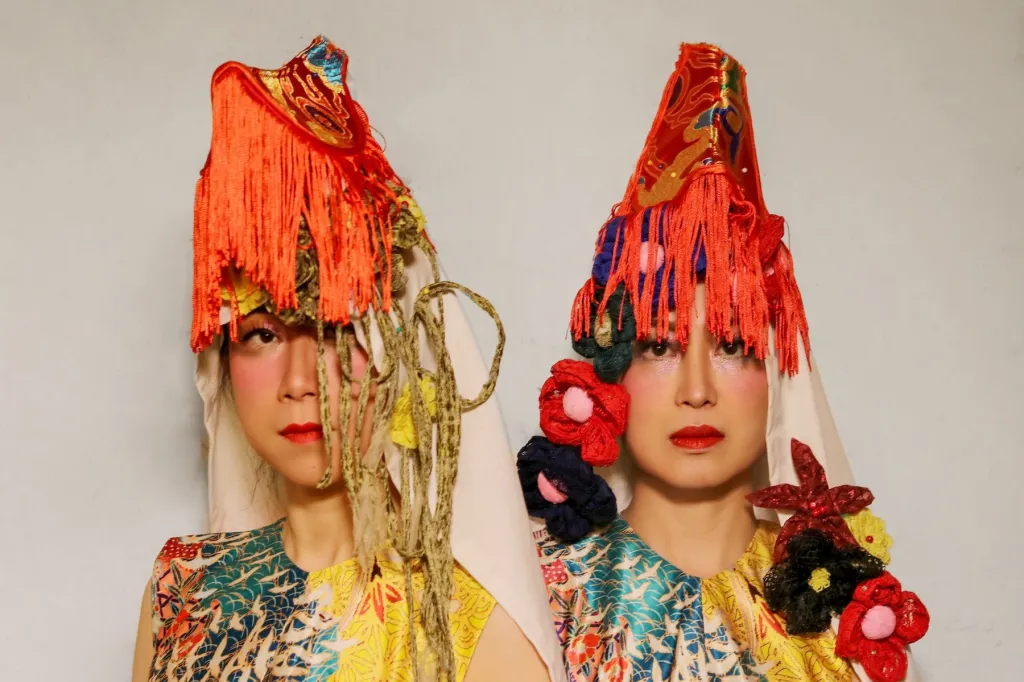In the foyer of The Odeon Theatre, the door swings open to the anticipating crowd. A rocking vibration pours into the space, inviting reactions of intrigue and wonder from the huddle of spectators.
Upon entering the shadowy space, metal bowls hang from the ceiling with glittering mandarins and bells that ring melodiously throughout the theatre – an artful ode to the customary offerings to the dead.
Opera for the Dead 祭歌 is an expertly haunting conceptualisation of Chinese funereal rituals, with Lim and Weng Weng often seeding the space with references to their personal accounts of grief. The audience files through the theatre, inspecting the curious cube designs, flocked by sheer and billowing curtains that form an enigmatic veil for the performers. Surrounding showgoers is a live, ambisonic soundscape that complements the atmospheric environment.
The show is also peppered with 3D animation renderings of private artefacts, representing the creators’ own loss, among other traditions reimagined for the stage. Paired with the talented live musicians and serene projections across the mobile stages, Opera for the Dead could feel like an immersive dream brought to life.
At the post-show panel discussion moderated by OzAsia Festival director Joon-Yee Kwok, the creators frame the project as an offering of art and music to their deceased loved ones, rather than the usual offerings of food and money that are often bestowed upon the recently passed.
The scored vocalisations, performed by Yutien Lin, are spectral and affecting. A theatrical and sobering sobbing occupies the space – paying tribute to the performative expectation of crying and mourning expected from grieving visitors of the departed. In the post-panel discussion, Weng Weng jokes that a relative once told her that she cried wrong during a funeral.
The cello solo, executed by Nils Hobiger, is melancholic and breathtaking, infused with an air of passion and sentimentality.
There is a palpable, communal stillness throughout the show, broken up by waves of intersecting movement from the spectators. There is also a shared feeling of mourning woven into the fabric of the production, with the awestruck audience’s eyes reverently locked on the performers.
Lim and Weng Weng have crafted a perceptive and sensitive homage to those who have passed that translates across languages and cultures.
Opera for the Dead 祭歌 continues at the Odeon Theatre until November 6 as part of OzAsia Festival
